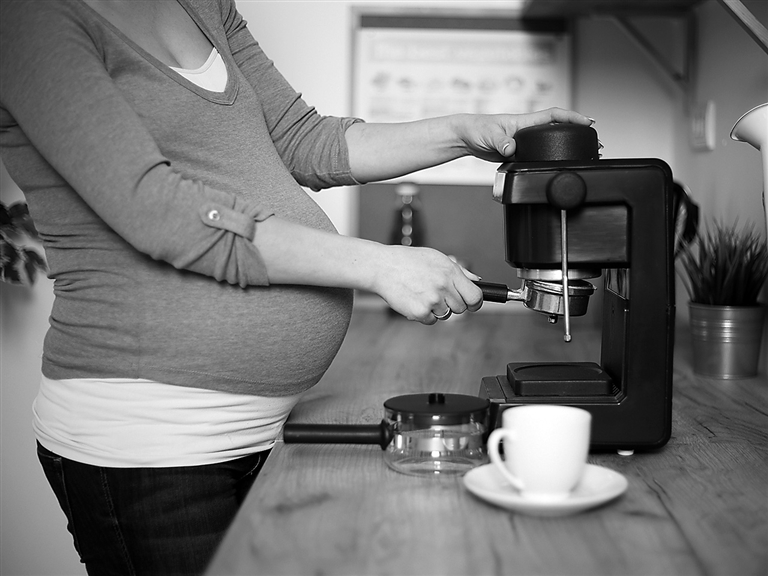
PREGNANT women might want to avoid drinking even a single daily cup of coffee, tea, or caffeinated soda, a new analysis of existing research suggests. The review looked at more than 1,000 existing studies pared down to 48 observational studies and meta-analyses published over the past 20 years. From it, researchers concluded that any caffeine consumption was associated with an increased risk of negative pregnancy outcomes, including miscarriage, stillbirth, low birth weight and childhood acute leukemia. Within this analysis of studies, prior research showed risks of miscarriage from caffeine consumption increasing 7 to 14 percent for each increment of 100 milligrams (mg) of caffeine consumed. The risks of stillbirth were estimated to increase 9 to 19 percent per 100 mg of caffeine consumed. The risk of low birth weight was calculated at increasing 10 percent per 100 mg caffeine consumed. The average cup of coffee has around 95 mg of caffeine. The studies analyzed indicated a 43 percent or higher risk of childhood leukemia in children born to mothers who consumed a high amount of caffeine during pregnancy. It also listed increased risks of the disease at any level of consumption. “Current advice is not consistent with the level of threat indicated by biological plausibility of harm and extensive empirical evidence of actual harm,” wrote Jack E. James, the study’s lead author and a professor of psychology at Reykjavik University in Iceland. “Accordingly, current health recommendations concerning caffeine consumption during pregnancy are in need of radical revision. Specifically, the cumulative scientific evidence supports pregnant women and women contemplating pregnancy being advised to avoid caffeine.” This latest study adds to a longstanding body of research on the link between caffeine consumption and potential negative outcomes during pregnancy. Therefore, it’s important to understand the limitations of this analysis and how to use the information in determining one’s own risk assessments. One consideration is that increased risks are always relative to the relative overall risks. For instance, the childhood leukemia rate is 4.7 per 100,000, so even a large increased risk — 43 percent or higher — is still a relatively small risk in the grand scheme of things. Another is that this analysis consists of studies that are observational in nature, which makes determining direct cause and effect difficult. “It is generally accepted that chronic exposure to chemicals during pregnancy is cause for concern,” the study says. “When the chemical of interest is caffeine, a near-universally consumed habit-forming substance of no nutritional value, the need for caution is compelling.” Dr. Sherry A. Ross, an OB-GYN and women’s health expert at Providence Saint John’s Health Center in Santa Monica, California, agreed. “Despite being an observational study, there is concerning evidence that we need to treat caffeine similar to the way we treat alcohol during pregnancy,” she said. “No amount is considered safe.” (SD-Agencies) | 
